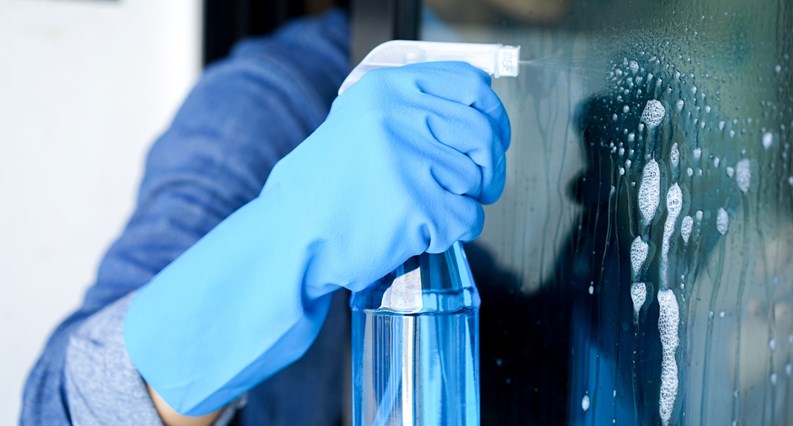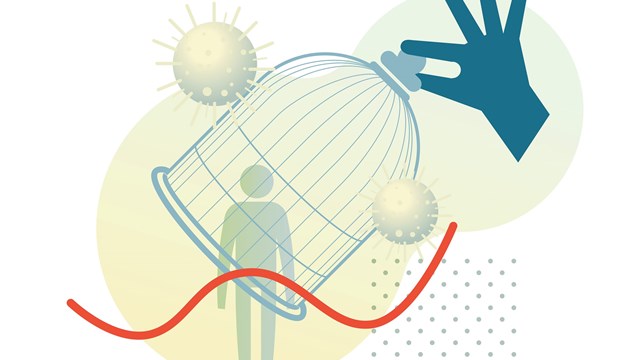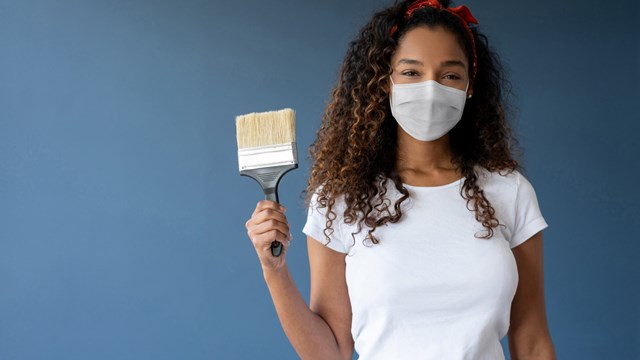The COVID-19 pandemic and social distancing it necessitates have compelled the managing agents and boards of condo and co-op properties to adapt to a “new normal,” changing the way many ordinary tasks are executed, from package delivery to common area cleaning to holding meetings. As the situation has unfolded and evolved, The Cooperator has spoken with and written about how small buildings and associations are handling these everyday issues in self-managed and minimally-managed properties. But how are the small vendors who provide these services -- many of which are the kinds of small businesses most challenged and endangered by COVID-19 -- adapting and staying afloat? We spoke to the owners of two cleaning companies specializing in multifamily properties to see what has changed for them, what has stayed the same, and how they're faring in this profoundly altered business landscape.
My Kinda Town, Chicago
Jake Silker and his wife Erin own and manage Windy City Cleaning Services and Short Stacks Cleaning -- two small cleaning and maintenance companies that cater to small condominium associations in Chicago. The companies offer slightly different services; Windy City is primarily involved in the cleaning and maintenance of larger commercial properties, COAs, and HOAs, while Short Stacks Cleaning caters to smaller to mid-sized COAs and the mixed-use buildings common in the city of Chicago, as well as residential cleaning services.
“The coronavirus is classified as an emerging pathogen,” says Silker. “The Environmental Protection Agency (EPA) has a list of disinfectants that meet their requirements for disinfection, called List N. We clean based on the continued guidance from the EPA, as well as the Centers for Disease Control (CDC). And while using personal protection equipment (PPE) is commonplace now, just a few short weeks ago there was a stigma attached to it as something a sick, contagious, or even crazy person would wear. We did not want to alarm or concern residents, so we communicated to our communities very early on that we would be wearing masks and gloves out of an abundance of caution, both for the safety of our cleaners, and for their community and staff.”
As for how things have gone since the early days of the pandemic, Silker says that “Some associations have requested an increase in their cleaning frequency, and many buildings have asked us to install hand sanitizer stations near their entries or elevators. There was a bit of a rush to secure some of our supplies - especially masks and gloves, not to mention the basics such as antibacterial soap and toilet paper, which are needed in many of our community rooms.”
Silker says that he reminds managers and board members that the single most important thing residents can do to reduce their chance of infection is wash their hands. Of course, no one can control what’s brought in from the outside. If a doorknob was disinfected at 3 p.m. and 50 people have come and gone since then, there's simply no telling what might be on the surface. So as soon as a resident enters their unit, before touching any other surfaces in their home -- and especially before touching their face -- they should wash their hands with warm water and antibacterial soap for the CDC-recommended minimum of 20 seconds.
“[Cleaning] isn't always quick when done correctly,” says Silker. “There’s a lot that goes on behind the scenes. We’re not just walking up the steps running a duster over the handrail -- we’re wiping underneath the handrail, because that’s where the fingerprints are. We change rags and gloves frequently to avoid cross-contamination, and we launder our uniforms daily to keep ourselves and our families healthy.”
Cleaning frequency and protocols aren’t the only things that the pandemic has changed, Silker continues. “People now understand the importance of cleaning. A lot of our employees have noticed more eye contact, and more ‘thank-yous,’ and acknowledgements where they used to be ignored.
When it comes to his staff, Silker says “We asked our staff to monitor their temperature and report any potential symptoms immediately. We are also encouraging them to stay home at the first sign of any issue. We have not had any workers refusing to work out of fear. There was definitely trepidation or anxiety during the initial weeks of the outbreak, but that seems to have subsided as we have learned more about the virus. With training and proper use of chemicals and protective equipment, our team feels safe, but remains vigilant.”
It's Up to You, New York
Rolando Velazco is the principal of Clean Habitat, a company based in Upper Manhattan that provides cleaning and light maintenance to residential co-op and condominium communities in New York City. He says that “While Clean Habitat has always strived to provide a clean environment for the people who live in our contracted properties, we have done two things specifically to respond to the COVID-19 outbreak: First and foremost, we’ve been focusing on cleaning spaces with high-touch surface areas -- such as handrails, mailboxes, intercoms, and laundry rooms -- with more frequency. All high-frequency touch point areas are now cleaned each time a Clean Habitat associate is on premises -- even if the associate is there just for trash removal.”
Secondly, Velazco says that the company has always used top quality cleaners and disinfectants, but now, “We are acutely attentive to CDC recommended products that are highly effective in killing coronaviruses. To that end, we are using more products that are of hospital grade.” He says that since his staff are the first line of defense, the company is also taking additional steps to protect them as well.
“We have always provided our ssociates with reusable gloves and a uniform consisting of T-shirts, long sleeved shirts, sweatshirts, and canvas bottoms. Since the COVID-19 outbreak, all staff have switched exclusively to disposable gloves. Once gloves are properly removed to minimize risk, they are promptly discarded. We have also provided all staff with eye protection in the form of goggles, as well as 3M P100 face masks for two reasons: to maintain a better level of protection from chemical odors that may be harmful when breathed in for prolonged periods of time, and to protect them and the residents of our properties from any airborne COVID-19 infection -- especially considering the time they are now spending indoors. And although any soap is effective against coronaviruses, we are now ensuring that antimicrobial hand soap is available to our staff in all of our maintenance rooms.”
Velazco says he is also in daily contact with his staff members to ensure that everyone is in good health. He advises employees to call the office immediately if they are experiencing any symptoms so that the company can do their best to assist them -- including connecting them to medical care, if necessary. They have also provided staff members with disposable thermometers to monitor themselves for fever in the event they feel unwell during the day. “We have been very fortunate that none of our staff have reported any illness,” says Velazco. “We value our staff tremendously, and know that when they perform optimally, we perform optimally.”
Velazco notes some additional changes resulting from the crisis. “Since more people have been staying home, we have noticed a lot more refuse from increased use of delivery services,” he says. “Trash and recycling services are now more time consuming for us. As I mentioned previously, some of the cleaning products that we now use require an extended application time to provide maximum effectiveness, and we ask our staff to clean those high-frequency touch point areas every time they visit one of our contracted properties. Additionally, since residents want to ensure they are protected, we have experienced an increase in communications between ourselves and building management and boards. We’ve also experienced an increase in service calls over the last three months from buildings of all sizes.”
While this is just a snapshot of two small companies providing essential services to condo and co-op communities, they’re illustrative of the kind of measures being taken by essential multifamily vendors and service providers all across the country. The impact of the pandemic is being felt in nearly every industry, at every level -- and the full effect of this once-in-a-generation event likely won’t be fully appreciated for years. In the meantime, however, small businesses are doing everything they can to serve their clientele and to keep themselves solvent.
A J Sidransky is a staff writer/reporter for The Cooperator, and a published novelist.










Leave a Comment